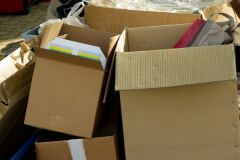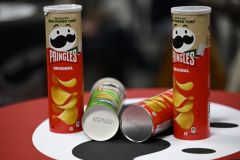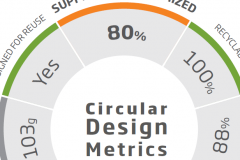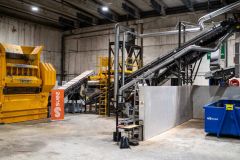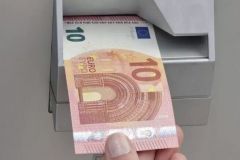Is plastic recycling a mythe?? At least that is what a survey published in the British newspaper The Guardian . According to the daily newspaper, sorting our plastic waste would not be useful at rien?!
Where does our déchets? go?
Oliver Franklin-Wallis, the journalist who investigated for The Guardian This is the first time that a plastic bottle has been used as an example to trace the path of a waste product. Once thrown in the trash, it becomes the property of the waste industry, which seeks to recover it in order to make a profit. However, plastic waste is not worth much. This is why it is most often sold abroad, explains the survey.
Until recently China was the largest international market for plastic recycling. Western countries exported an average of 30 to 40% of their paper and plastics to China. But in 2018, the country banned 24 types of waste on its territory, mainly plastic and paper and cardboard.
A decision that would be the consequence of the release of the film.. Plastic China . This internationally award-winning documentary follows the daily Yi-Jie, an 11-year-old out-of-school girl whose family works and lives in a household waste recycling workshop also known as "?Nations United Waste plastiques?". It features families who recycle waste with their bare hands and suffer irreversible damage in order to earn a living. Recyclable plastic in granular form can then be sold to manufacturers.
Following China's decision, Westerners quickly turned to other countries such as Thailand, Indonesia, Malaysia or Vietnam. But in these countries, as in China, waste is often burned or abandoned, ending up in rivers and oceans, explains the survey by The Guardian.

According to Greenpeace, less than 10% of the plastic produced in the world today is recycled. This means that the rest has been incinerated, releasing toxic particles into the air, or lies in the oceans and in nature.
How about 100% recyclage??
Passed by Parliament in January, the anti-waste bill sets a target of 100% recycled plastic by 2025 (compared to 26% of plastic packaging recycled in France in 2016, according to Plastics Europe figures).
But for Nathalie Gontard, research director at the Institut national de la recherche agronomique (INRA), 100% recycling of plastics ad infinitum is an illusion. The "?vrai?" recycling, in the sense of the circular economy, which consists in a waste material becoming its original material again, is a process that does not work for plastics," she explains in an interview with the journal The World .
The director of INRA prefers to use the term "?décyclage?" for plastics, i.e. transforming a plastic object into an object of inferior quality. But after this initial transformation, which will degrade them even further, plastics will become unsuitable for further recycling and will end up in landfills, incinerated or in nature.
"?Nous focusing on a 100% recycling target that is impossible to achieve diverts our attention from all the other measures that are within everyone's reach, right now, to reduce our consumption of plastique?." she points out.
Waste that doesn't exist doesn't need to be recycled
Greenpeace makes the same observation: recycling only delays the inevitable. Each recycling reduces the quality of the product obtained: the product is degraded, the material is exposed to risks of contamination for the consumer, as food packaging must remain sterile. And sooner or later, plastic ends up as non-recyclable waste. Therefore, the only solution for environmentalists to reduce plastic consumption is not to produce it.




